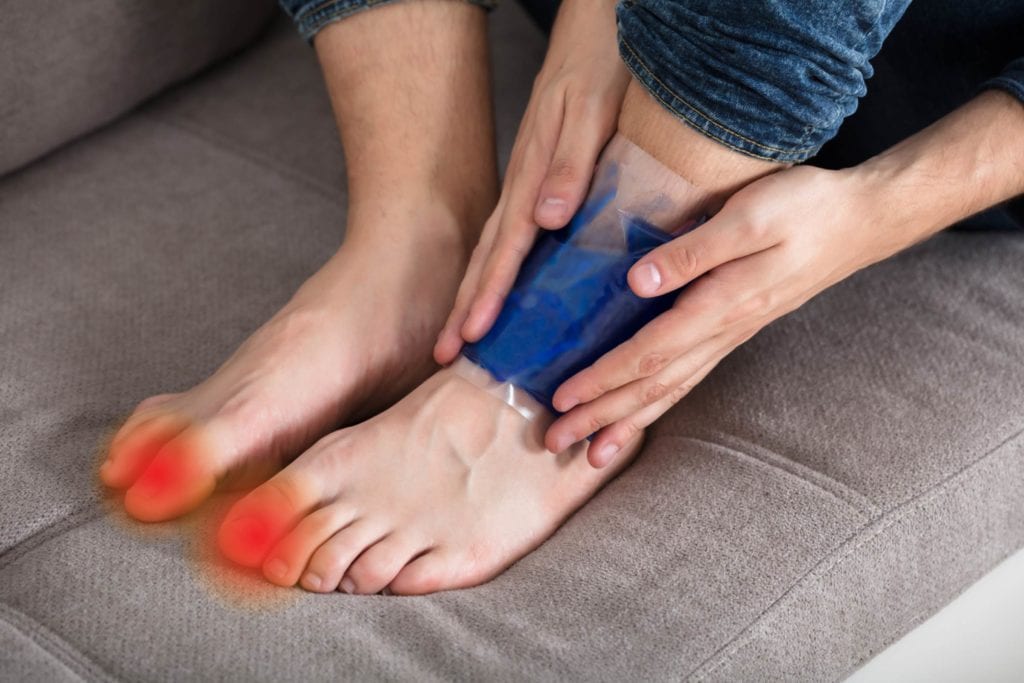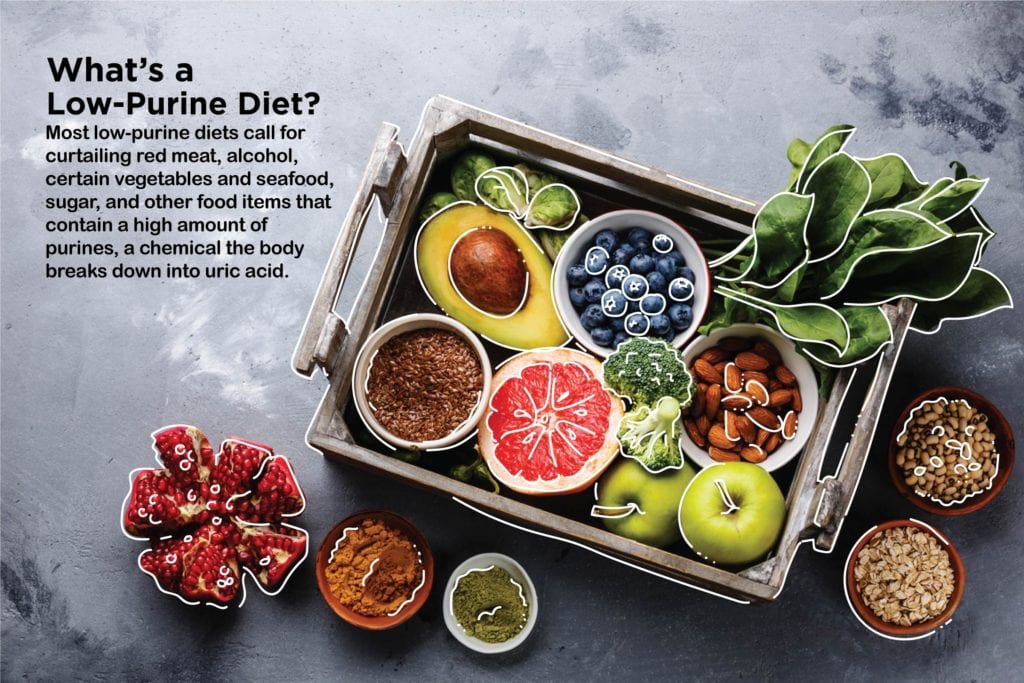

Anyone who’s experienced a gout attack knows it can be excruciating, causing red, hot, painful, and swollen joints. Gout, a form of arthritis, typically affects the joints in the feet, ankles, or knees; around half the time it strikes in the big toe, which can make it impossible to wear shoes. Even the light fabric of a sock can be aggravating.
Because the pain from a gout attack can be so bad, people with the condition will often try anything out there to get relief, which has led to a boom in so-called gout home remedies.
While there are a few legitimate home remedies for gout out there, prescription medications remain the mainstay for treating gout, during an acute attack as well as over the long term to reduce gout attacks in the first place.
This Is Your Body During a Gout Attack
Gout symptoms occur when excess uric acid in your body forms crystals in the joints. The body treats these crystals like a foreign body and attacks them with white blood cells. The white cells, in turn, release inflammatory chemicals called cytokines into the joint fluid. The cytokines bring in more white cells, and on it goes.
“The joint becomes a battlefield,” says Theodore Fields, MD, professor of clinical medicine at Weill Cornell Medical College and a rheumatologist the Hospital for Special Surgery in New York City.
The Best Way to Treat a Gout Attack
Gout attacks can last for up to 10 days or longer and often subside on their own after a week or two, but medications will speed up healing and prevent future flares.
Standard medical treatments for a gout attack include:
- Anti-inflammatory drugs like naproxen (which can be purchased over the counter or in prescription strength)
- Colchicine, which reduces uric acid build-up
- Steroids, such as prednisone
For 98 percent of patients, says Dr. Fields, one of these medications these will knock out an attack.
Home Remedies for Instant Gout Relief
There are a couple of effective home remedies for a gout attack that you can use as an adjunct to medications. These include:
- Resting the joint
- Using ice packs to reduce swelling
- Drinking cherry juice
Cherry juice is high in vitamin C, which makes uric acid come out in the urine, but the effect is mild compared to some of the available medicines for gout attacks. Cherry juice can also increase the risk of kidney stones; they shouldn’t be used in anyone who is predisposed to them.
Dr. Fields cautions against relying solely on home remedies to relieve gout pain fast instead of taking medicine because the longer you wait, the longer it will take for your gout to get better.
“The good thing about treating a sudden gout attack with drugs right away is that you can take the medication for a very short time,” he says. “You should see a 50 percent improvement within 24 hours of treating an attack. If you’re not seeing that kind of improvement, you need to re-think what you’re doing and consult with your doctor about a different approach.”
Home Remedies for Long-Term Gout Relief


The American College of Rheumatology recommends a couple of lifestyle modifications for preventing future attacks of gout:
1) Lose weight if you need to. Being overweight can increase uric acid levels as well as put pressure on the joints.
2) Follow a low-purine diet. Another effective way to reduce uric acid levels is to follow a low-purine diet. Purines are organic compounds that break down into uric acid. Following a low-purine diet means avoiding “the big four” — alcohol, shellfish, red meat, and high fructose corn syrup.
Limiting these foods is also beneficial for heart health — and people with gout are at higher risk for heart disease.
But don’t go overboard with dietary changes to relieve gout pain though, advises Dr. Fields. “You can find lists of thousands of different foods you’re not supposed to have if you have gout. Those recommendations are impossible to follow and can make you crazy.”
How to Handle Your First Gout Attack
After a first attack of gout, it’s OK to try to stave off another one with dietary changes alone. But if you have another attack, it’s important to start taking preventive gout medications on a regular basis. Long-term medications for gout include allopurinol and febuxostat, both of which limit uric acid production.
Some patients, says Dr. Fields, treat each attack as a separate event and don’t talk to their doctors about doing a preventive approach. He uses the analogy of lighting a book of matches. “If you have one match lit, it’s easy to put out, but if you have the whole book lit, it’s a lot harder.”
Take Caution with Supplements for Gout
As for the many supplements and other purported home remedies available for gout, including turmeric and bromelain, there is no significant evidence backing them up as of now, and there’s no adequate evidence showing that supplements have any effect even comparable to that of medicines.
“From my point of view,” says Dr. Fields, “the home remedy concept to gout is often harmful because it keeps patients from taking medications that we know are effective.”
Keep Reading:
If you enjoyed reading this article, you’ll love what our video has to offer.
Subscribe to CreakyJoints
Get access to our Gout Patient Guidelines by subscribing to CreakyJoints today.





